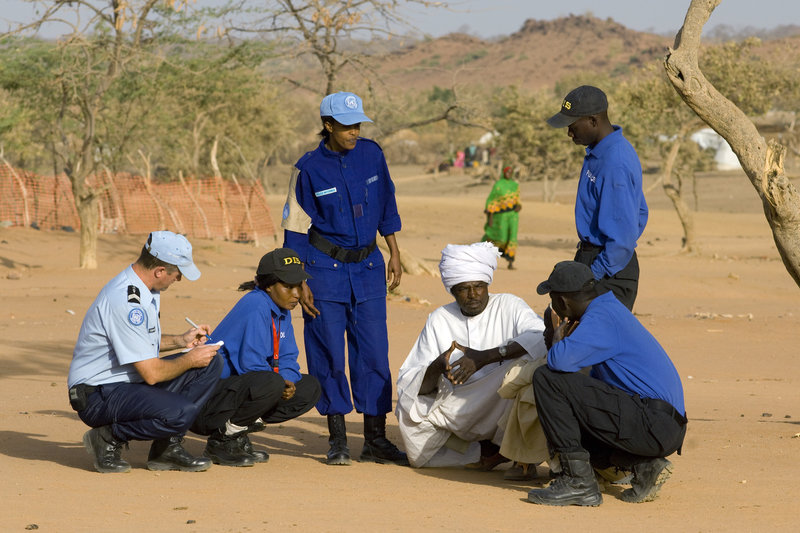What our UN police officers do
United Nations Police are deployed in most peacekeeping operations and are deployed as advisers in a number of United Nations Special Political Missions. The mandates of the missions define the functions of United Nations Police, which range from interim policing, provision of operational support to advisory functions.
United Nations Police consists of national police officers that are serving with the United Nations for a limited period of time. They aim to reinforce or re-establish domestic police services to create the conditions for sustainable peace and development. United Nations Police for example support host-State counterparts to develop community-oriented policing, mentors, and in some cases trains host-State police officers or provides specialization in different types of investigations. In a number of countries United Nations Police help host-state police and other law enforcement agents to address serious and organised crime.
Assistance to host-state police and other law enforcement agencies
United Nations Police Officers support the reform, restructuring and rebuilding of domestic police and other law enforcement agencies through training and advising. Financial assistance is also provided, often through trust funds, for the refurbishment of facilities and the procurement of vehicles, communication equipment and other law enforcement material. Assistance to reform, restrucuring and rebuilding of host-state police services has been provided, for example, by the police components of peace operations in the United Nations Mission in Bosnia and Herzegovina (UNMIBH), the United Nations Operation in Burundi (ONUB), the United Nations Operation in Côte d'Ivoire (UNOCI), the United Nations Organization Stabilization Mission in the Democratic Republic of the Congo (MONUSCO), the United Nations Stabilization Mission in Haiti (MINUSTAH), the United Nations Mission for Justice Support in Haiti (MINUJUSTH), the United Nations Interim Administration Mission in Kosovo (UNMIK), the United Nations Mission in Liberia (UNMIL) and the United Nations Mission in Somalia (UNSOM).
Interim law enforcement
In some missions, United Nations Police Officers are directly responsible for all policing and other law enforcement functions and have a clear authority and responsibility for the maintenance of law and order. They are, among other things, entrusted with powers to arrest, detain and search. These responsibilities have historically been given as part of United Nations transitional administrations, as was the case in Kosovo (UNMIK) and the United Nations Transitional Administration in East Timor (UNTAET).
Protecting United Nations personnel and material
United Nations Police Officers, particularly members of Formed Police Units, support host-state police and law enforcement agencies in the execution of their functions.
United Nations Police are not, however, considered as law enforcement officers under the legislation of the host country and their prerogatives are consequently limited: they may, however, stop, detain and search individuals in accordance with the mandate of the mission and specific directives issued by the Department of Peacekeeping Operations. They also play a key role in the protection of United Nations personnel and facilities. Such security functions, in support of domestic police and other law enforcement agencies are currently performed by members of Formed Police Units assigned to the United Nations missions in the Côte d'Ivoire (UNOCI), the Democratic Republic of the Congo (MONUSCO) and Liberia (UNMIL).

